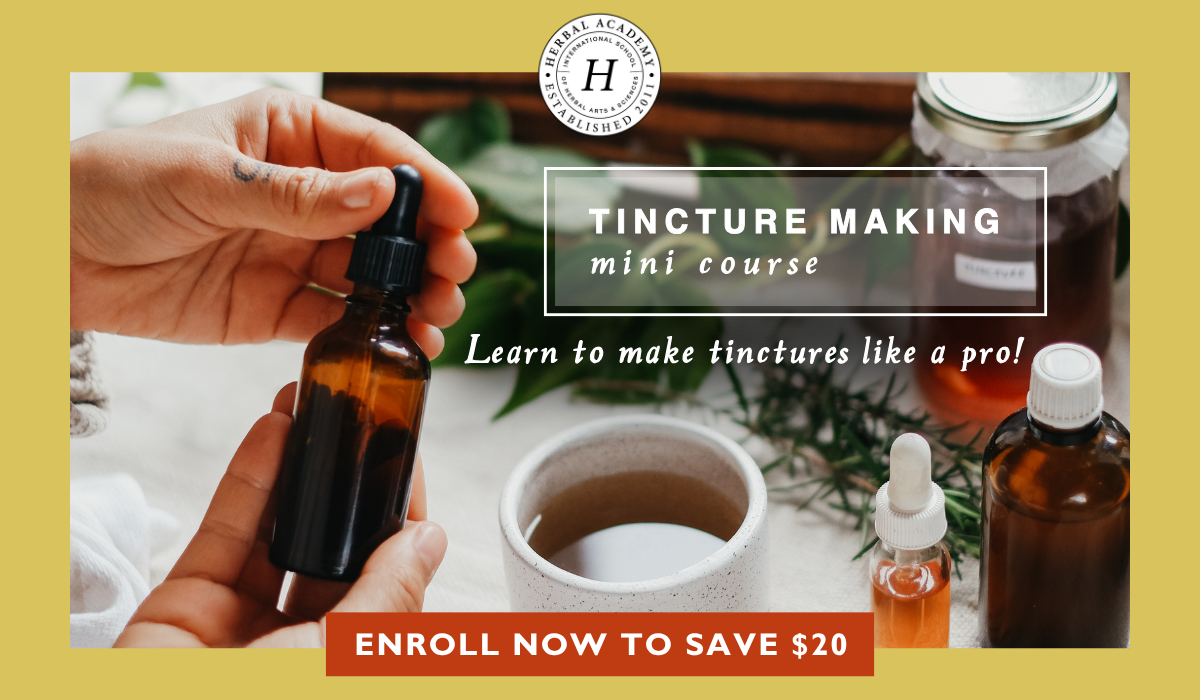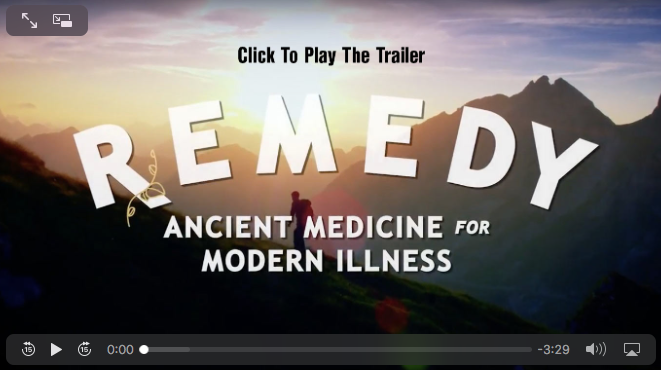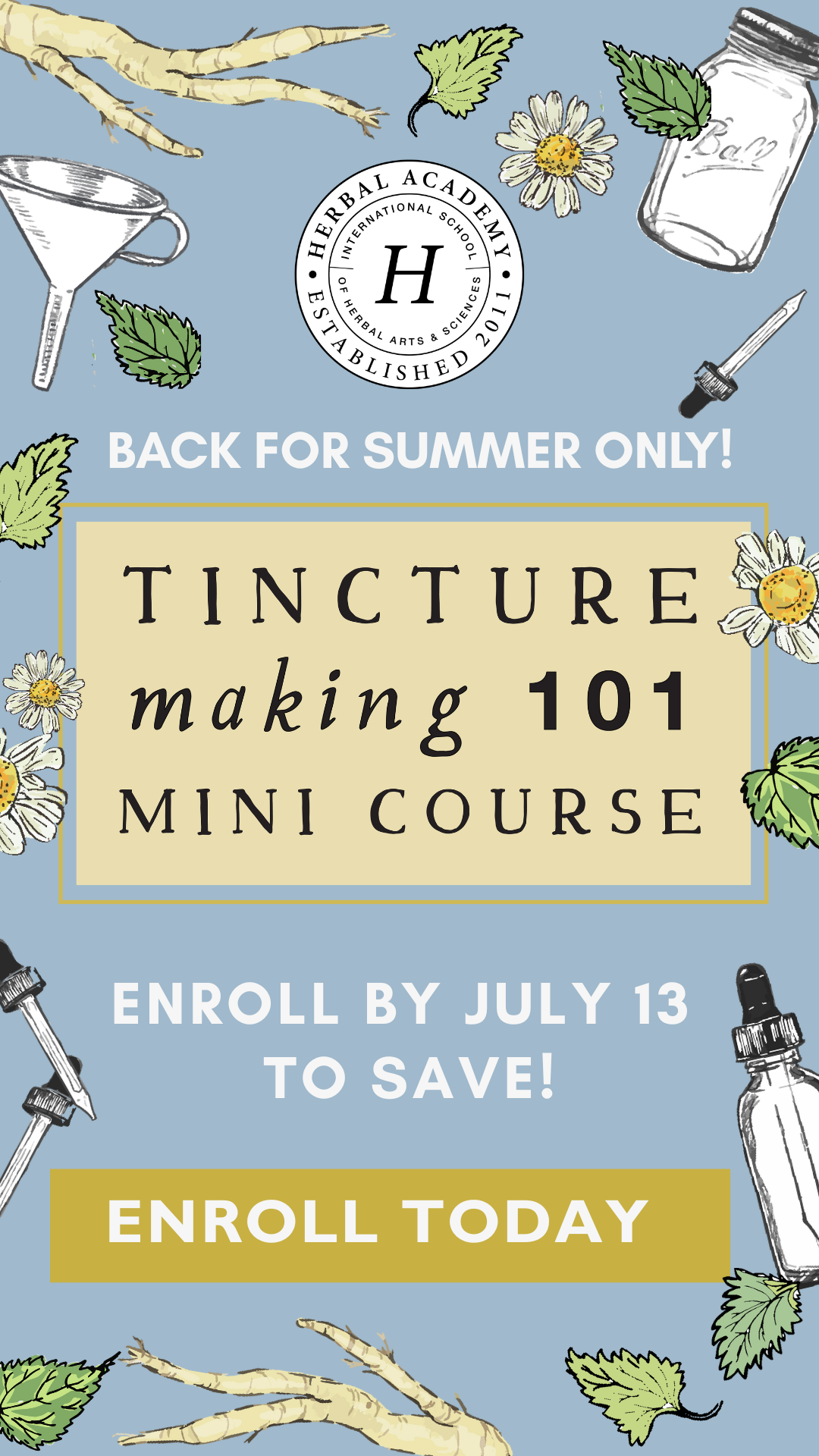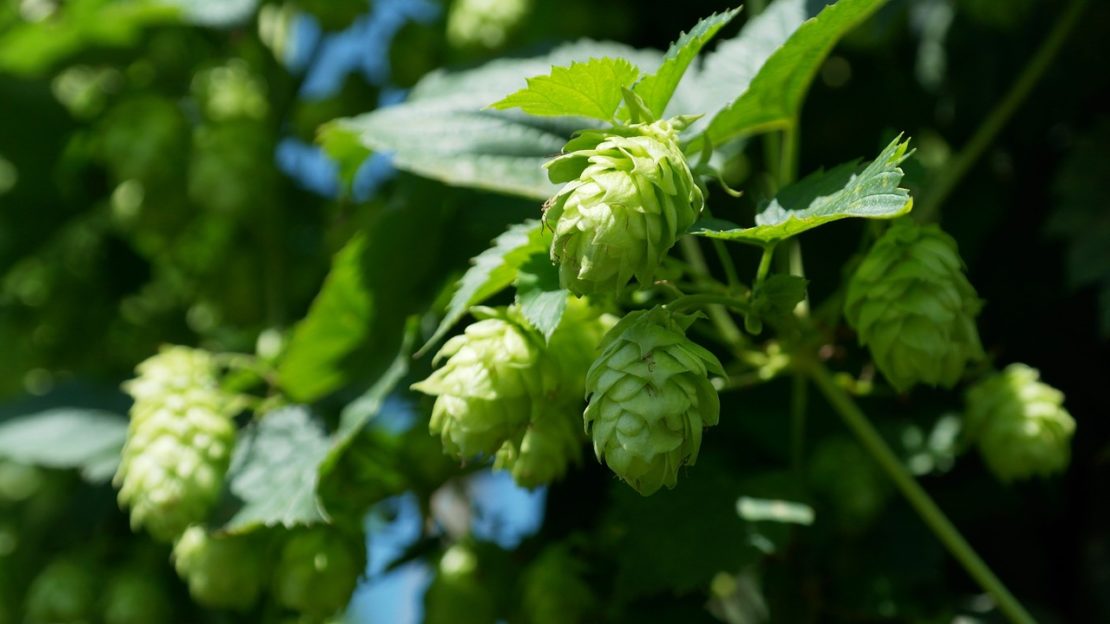
8 Herbs That Calm The Anxious Mind
It may feel like today’s world is in a state of upheaval with social, political, and economic issues stirring up emotions inside of each of us. These emotions are often generically labeled as stress, and while that may be the case, acute stress has a tendency to become chronic stress if not properly addressed, and chronic stress may eventually lead to anxiety and/or depression.
While we can’t change the time we live in, we can change how we approach daily stressors that come our way, whether it’s the local news, our job, or our home life, that contribute to the stress we experience in our lives. Instead of focusing on everything that is wrong in our world, why not focus on what is right? As the saying goes, “garbage in, garbage out,” and this is true with our thoughts and emotions. If we can begin to think good, positive thoughts, and if we can spend time doing things that bring us joy and a sense of peace, perhaps we will be better able to calm our anxious minds and handle the daily stressors that come our way.
Herbs can also help us manage stress in our lives. In the following video from the Remedies Docuseries, herbalist Rosemary Gladstar shares eight herbs that have the ability to calm the anxious mind. We’ll look at each of these herbs in a bit more detail below the video, and we’ll also share how you can learn even more about using ancient wellness methods, such as herbalism, to approach imbalances in today’s modern world in the upcoming Remedy Docuseries.
Calm The Anxious Mind With These Eight Herbs
** This video is an exclusive preview of the free 9-part Remedy Docuseries, open for free viewing for a limited time. Sign up here to reserve your free preview of the series!
Kava (Piper methysticum) Root
Kava is best-known and studied as an herb that addresses acute stress responses, nervous and social anxiety, and insomnia. Herbalist jim mcdonald says kava is most effective when one is overwhelmed and muscular tension is present (mcdonald, n.d.). Kava helps us to let down social barriers. It can help when one has social anxiety or stage fright. Some feel kava is a relaxing herb, while others feel it acts as more of a hypnotic and sedative. While herbalists may differ in their opinions of how to categorize kava, many do agree that its effects are dose-dependent. Studies have shown that the appropriate use of kava causes no negative cognitive effects or physiological dependency (Gendle, Stroman, & Mullin, 2011; Singh, 1992), making it an effective option for a variety of anxiety-related imbalances.
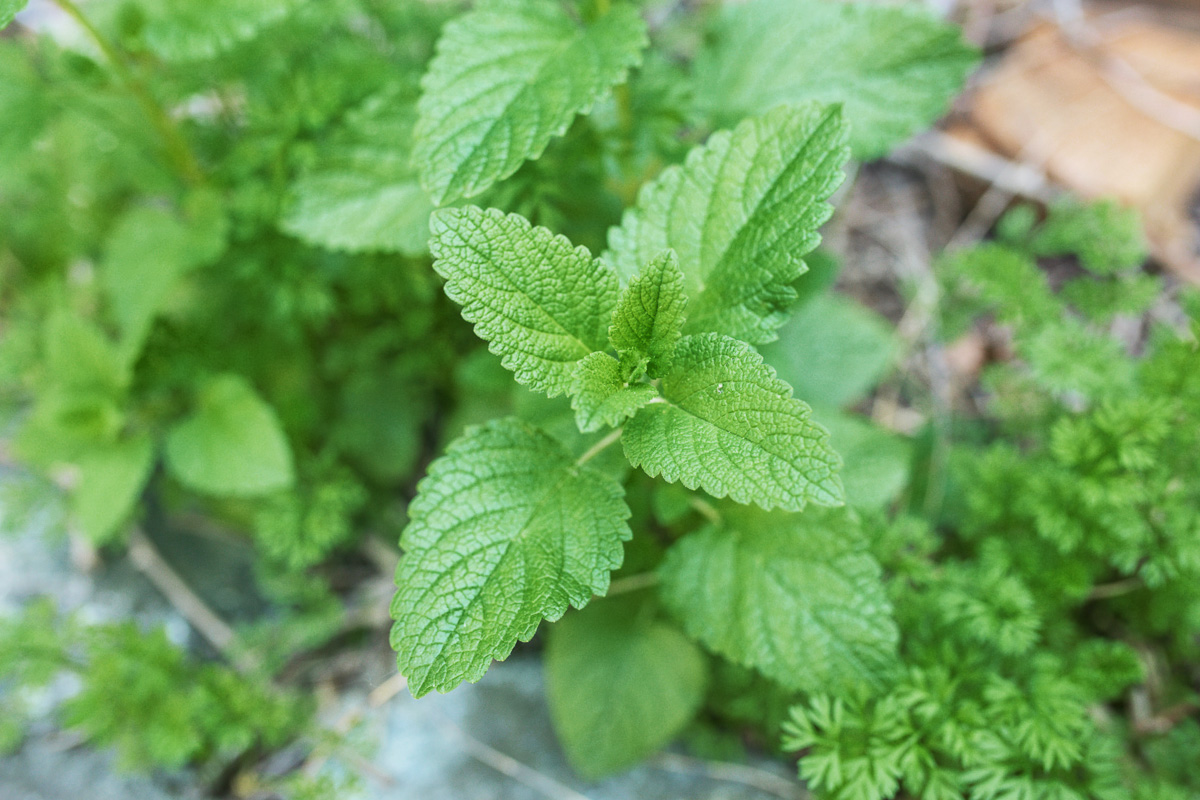
Lemon Balm (Melissa officinalis) Leaf
Lemon balm has been used as a nervine for centuries and is known to soothe anxiety, nervousness, and depression. It is also said that it gladdens the heart and brings light where there is darkness and softness where there is tension. A 2004 research experiment found that 600 mg of lemon balm showed the improvement of negative moods following simulated stress (Kennedy et al., 2003). If you’re looking for a great herb to calm your anxious mind, lemon balm may be a good fit!
Chamomile (Matricaria chamomilla) Flower
Chamomile is another wonderful herb that helps to ease tension and to calm the anxious mind. Studies have shown the use of chamomile to have anxiolytic effects in persons with mild to moderate generalized anxiety disorder (Amsterdam et al., 2009) as well as having some antidepressant activity as well (Amsterdam et al., 2012). Chamomile is believed to be most beneficial for those who experience anger and inflammation when under stress.
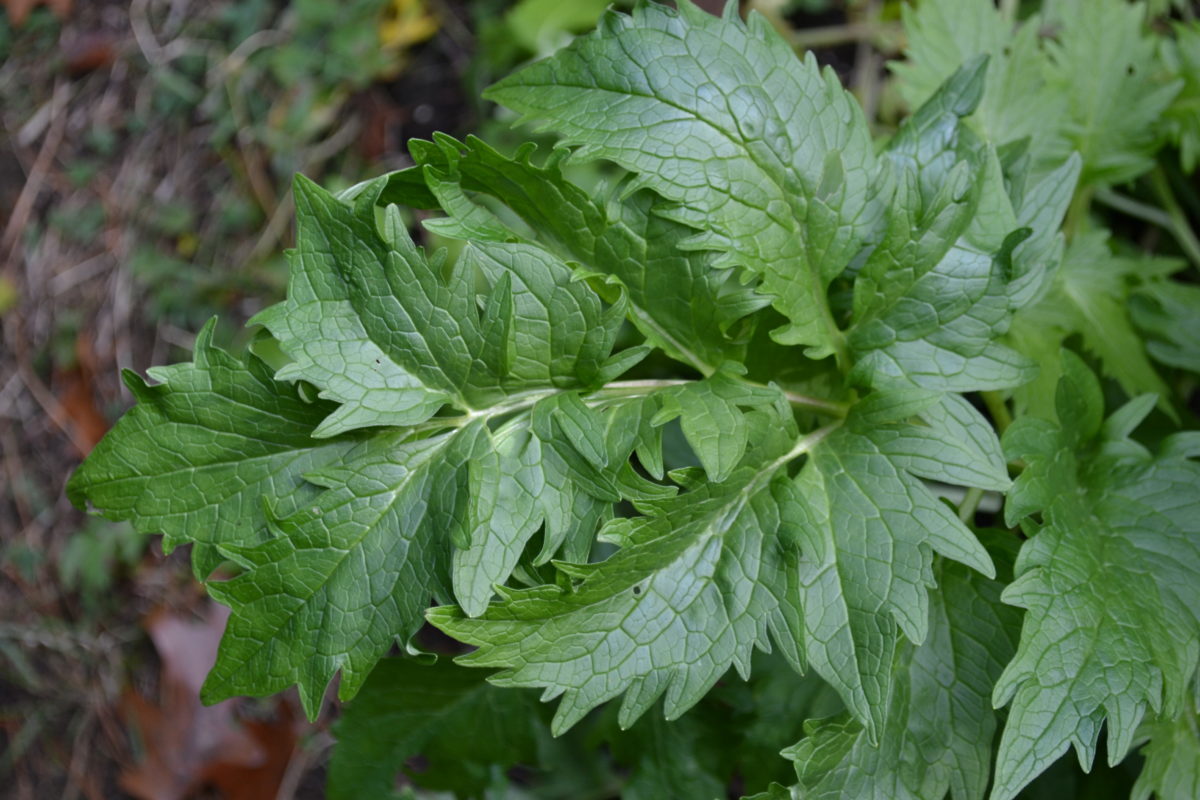
Valerian (Valeriana officinalis) Root
Valerian is a go-to herb for normalizing the nervous system as it offers neuroprotective, anxiolytic, and antidepressant action. In fact, valerian has been used as a relaxant, mild sedative, and effective sleep aid for thousands of years, which is especially useful when muscle tension leads to or is caused by anxiety and/or an inability to sleep. Valerian’s ability to help soothe frayed nerves and tension and gently lift the spirits makes it a great herb for those experiencing anxiety (as it sedates those who are agitated) and those experiencing depression (as it helps to stimulate those who are depressed) (Murray, 1995).
Hops (Humulus lupulus) Strobiles
Hops is probably best known for its sedative properties. Stories tell of farm hands feeling excessively sleepy after picking the plant’s catkins—leading to hops’ reputation as a sedative. The golden resin found in hop strobiles, lupulin, is believed to be responsible for this effect. While there is little scientific evidence to support hops as an effective sedative, as most early evidence is anecdotal (Koetter & Biendl, 2010) and modern studies combine hops with other sedative herbs (Maroo, Hazra, & Das, 2013). Nonetheless, hops is still used today as an herb to promote sleep and calm the anxious mind.
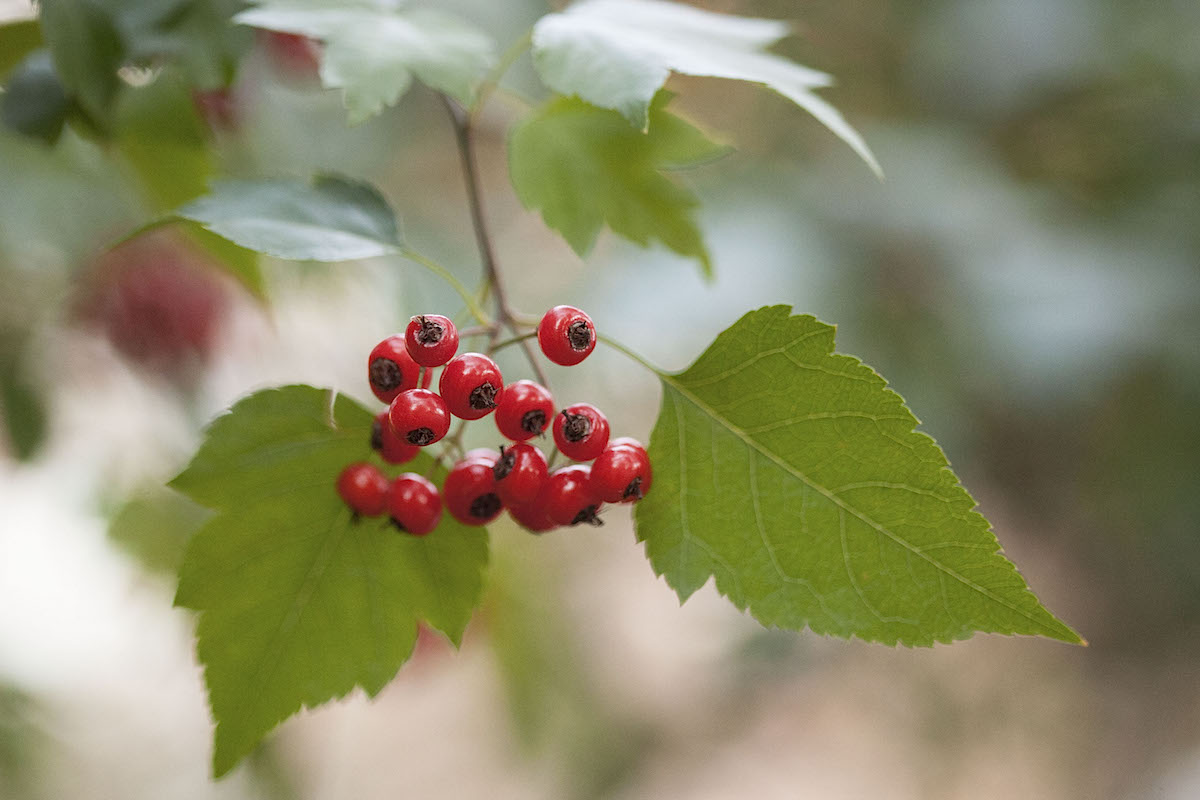
Hawthorn (Crataegus spp.) Aerial Parts
Hawthorn is used as a calming nervine, much like rose (Rosa spp.), to soothe, open, and protect the energetic heart. Rosemary Gladstar says hawthorn is her favorite remedy for sadness, grief, and loss or when the heart needs a bit of extra protection (Gladstar, 2010), and hawthorn is included in David Winston’s Grief Relief blend (Winston, 2012). Hawthorn is also used for anxiety. In a 2004 study, a combination of hawthorn (C. oxyacantha) flowers, California poppy (Eschscholzia californica) aerial parts, and magnesium was shown to be safe and more effective than the placebo in treating mild-to-moderate anxiety disorders (Hanus, Lafon, & Mathieu, 2004).
Oat (Avena sativa) Tops
Oatstraw and milky oats are considered one of the best herbs for restoring the nervous system, particularly in times of stress, when there are signs of nervous system weakness, or when one experiences depression and exhaustion (Hoffmann, 2003), is overworked, or has experienced an emotional trauma (Hardin, 2010). Symptoms of nervous system imbalance may include irritability, chronic fatigue, inability to focus, loss of libido, and heart palpitations (Hardin, 2010). Oatstraw infusions can help to mellow the mood, ease anxiety, combat the effects of daily stress, and resolve sleeplessness. Milky oat tincture is indicated for the same nervous system imbalances as oatstraw, but should be used alongside oatstraw infusions in more acute cases when the symptoms are more severe (Bennett, 2014).
And there you have it. Eight herbs that help calm the anxious mind.
You can learn even more about these particular herbs (and many others) when you explore the herbal monographs inside of our membership site, The Herbarium.
Learn more about The Herbarium here.
We also have an entire short course that integrates nutritional, lifestyle, and herbal practices to help you manage stress naturally.
Learn more about our Herbal Self-Care for Stress Management short course here.
Learn Even More About Ancient Remedies with the Remedy Docuseries Online Event
The Remedy Docuseries is coming back with their free 9-day online event that includes 42 world-renowned natural health experts like the Godmother of American Herbalism herself, Rosemary Gladstar, and we want to tell you all about it!
This series is completely free—no strings attached. Our Herbal Academy team is already signed up for the event, and we would like to invite you to join us for this fantastic video series, too!
This limited-time enrollment for Ancient Medicines for Modern Illness online event starts now.
If you haven’t heard of this video series before, it is a groundbreaking 9-part docuseries exploring the world’s most promising wellness-promoting herbs and how they are being used to help with the most life-threatening illnesses.
You will learn from herbalists and health professionals about powerful herbs that support people with a variety of illnesses, such as cancer, heart disease, autoimmune disorders, diabetes, Alzheimer’s, Lyme disease, and more.
You’ll also discover herbs that have been scientifically shown to support people with common health challenges, such as chronic pain, stress and anxiety disorders, insomnia, and chronic fatigue.
Register yourself for this journey and discover simple natural approaches for as many imbalances and questions as you can imagine.
Sign up for the FREE Remedy Series during this limited-time registration period!
We here at the Herbal Academy believe that the lost ancient art of herbalism is returning to the forefront—into homes everywhere across the globe, right where it belongs, and it is the mission of the Herbal Academy to bring herbs and this practice back to our roots through the spirit of collaboration, which is why we couldn’t be more excited to share this transformative documentary series with you.
We believe the mission of this series lines up so closely with our mission at the Herbal Academy, bringing together many voices of herbalism for a well-presented free event that will be life-changing to so many.
View the trailer on their website and register yourself now to hold your seat in this event.
Click HERE to register for this limited-time event.
We’ll be joining in, too, so we thoroughly look forward to sharing this time with you! It’ll be here before you know it.
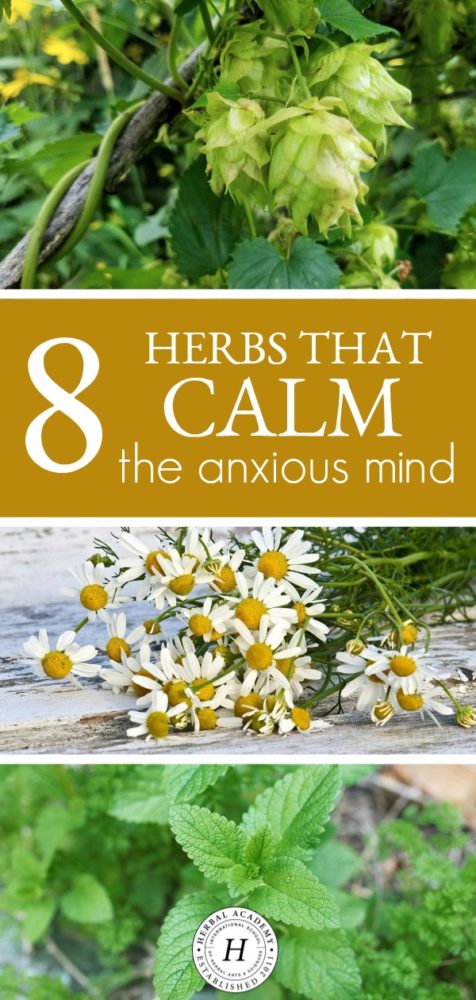
REFERENCES
Amsterdam, J.D., Li, Y., Soeller, I., Rockwell, K., Mao, J.J., & Shults, J. (2009). A randomized, double-blind, placebo-controlled trial of oral Matricaria recutita (chamomile) extract therapy for generalized anxiety disorder. Journal of Clinical Pharmacology, 29(4): 378–82.
Amsterdam, J.D., Shults, J., Soeller, I., Mao, J.J., Rockwell, K., & Newberg, A.B. (2012). Chamomile (Matricaria recutita) may provide antidepressant activity in anxious, depressed humans: An exploratory study. Alternative Therapies in Health and Medicine, 18(5):44-9.
Bennett, R.R. (2014). The gift of healing herbs. Berkeley, CA: North Atlantic Books.
Gendle, M.H., Stroman, A.K., & Mullin, D.P. (2011). Effect of an acute dose of crude kava root extract on problem solving in healthy young adults. The Australian Journal of Medical Herbalism, 23(4):160-163.
Gladstar, R. (2010). Unpublished class notes from Wild Herb Walk lecture. Sage Mountain, Vermont.
Hanus, M., Lafon, J., & Mathieu, M. (2004). Double-blind, randomised, placebo-controlled study to evaluate the efficacy and safety of a fixed combination containing two plant extracts (Crataegus oxyacantha and Eschscholzia californica) and magnesium in mild-to-moderate anxiety disorders. Current Medical Research and Opinion, 20(1):63-71.
Hardin, K.R. (2010). Wild as the day is long: The restorative medicine of Avena. Retrieved from http://bearmedicineherbals.com/wild-as-the-day-is-long-the-restorative-medicine-of-avena.html
Hoffmann, D. (2003). Medical herbalism. Rochester, VT: Healing Arts Press.
Kennedy, D.O., Scholey, A.B., Tildesley, N.T., Perry, E.K., & Wesnes, K.A. (2003). Modulation of mood and cognitive performance following acute administration of Melissa officinalis (lemon balm). Pharmacology, Biochemistry and Behavior, 72(4), 953-964.
Koetter, U., & Biendl, M. (2010). Humulus lupulus: A review of its historic and medicinal uses. HerbalGram, 87:44-57. Retrieved from http://cms.herbalgram.org/herbalgram/issue87/article3559.html?ts=1460834281&signature=63141638b8f7d9e7b2f6ef513ac9044e&ts=1461071133&signature=84d49ee62b1d9d06fbd556b64e1b0f0a&ts=1461071138&signature=12a38180dbe1e740ce46113c1347d2aa
Maroo, N., Hazra, A., & Das, T. (2013). Efficacy and safety of a polyherbal sedative-hypnotic formulation NSF-3 in primary insomnia in comparison to zolpidem: A randomized controlled trial. Indian Journal of Pharmacology, 45(1), 34–39. http://doi.org/10.4103/0253-7613.106432
Mcdonald, J. (n.d.) Kava kava: Piper methysticum. Retrieved from http://www.herbcraft.org/kava.html
Murray, M.T. (1995). The healing power of herbs. Rocklin, CA: Prima Publishing.
Singh, Y.N. (1992). Kava: An overview. The Journal of Ethnopharmacology, 37:13-45.
Winston, D. (2012). Traditional research: Grief relief. Retrieved from http://www.davidwinston.org/formulas/griefrelief_trad.html

